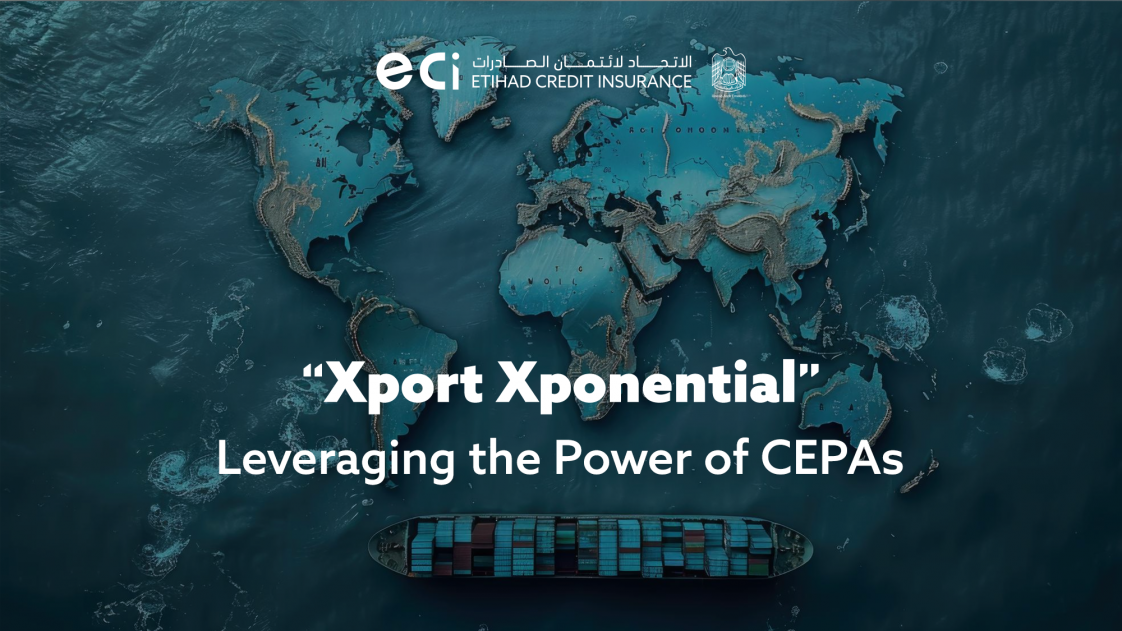
Blogs
Leveraging Comprehensive Economic Partnership Agreements (CEPAs) for the UAE
Leveraging the Power of Comprehensive Economic Partnership Agreements (CEPAs) for the UAE
In an ever-evolving global landscape, the UAE is proactively strengthening its international ties to reinforce its position as a global trade and logistics hub. Establishing Comprehensive Economic Partnership Agreements (CEPAs) is considered a critical step in accomplishing this objective. These agreements, which enhance ties with strategic partners across the globe, are more than just trade agreements as they represent a crucial component of the UAE’s economic goals.
The UAE’s first bilateral trade agreement under the CEPA framework was signed with India on February 18, 2022. This milestone marked the beginning of a new era in the UAE’s pursuit of the ‘Projects of the 50,’ which is a series of bold initiatives designed to drive the nation into its next phase of sustainable development.
The Far-reaching Benefits of CEPAs
CEPAs offer a multitude of advantages that extend well beyond economic gains:
- Enhanced Market Access: Businesses gain unprecedented entry into foreign markets, allowing for expansion and increased competitiveness.
- Lower or Eliminated Tariffs: Reduction or removal of tariffs lowers costs for exporters and importers, fostering smoother trade flows.
- Simpler Customs Procedures: Streamlined customs processes ensure quicker and more efficient trade operations.
- Rules-based Competition: Fair and transparent rules create a level playing field for all businesses.
- Clear and Transparent Rules: Predictable and clear regulations help businesses plan and execute their strategies more effectively.
Exploring the Depth of CEPA Chapters
Each CEPA is carefully crafted with specific chapters that address various aspects of trade and economic cooperation:
- Trade in Goods: This chapter outlines market access percentages and the reduction/removal of tariffs and barriers for both parties, ensuring smoother trade in goods.
- Rules of Origin: Establishes the criteria for goods to be considered as originating from a country, making them eligible for tariff elimination under the agreement.
- Trade in Services: Defines market access conditions for a broad range of services, including business, telecommunications, tourism, and financial services.
- Customs Procedures and Trade Facilitation: Enhances efficiency in customs procedures, facilitating cross-border trade and adopting international best practices.
- Technical Barriers to Trade: Ensures that standards and regulations do not create unnecessary obstacles to trade, promoting smoother exchanges between parties.
- Sanitary and Phytosanitary Measures: Prevents unjustified barriers related to health and safety measures, ensuring fair trade practices.
- Digital Trade: Facilitates the flow of data across borders and prohibits requirements for local data storage, promoting a digital economy.
- Trade Remedies: Establishes mechanisms for safeguarding domestic industries from import surges and addresses anti-dumping and countervailing duties.
- Intellectual Property Rights: Protects and promotes intellectual property, fostering innovation and cooperation in various sectors.
- Dispute Settlement: Provides a framework for resolving disagreements about the agreement’s interpretation or application.
- Government Procurement: Opens procurement markets through mutual substantive and procedural requirements.
- Economic Cooperation: Encourages collaboration on various economic activities and identifies new areas of interest.
- Investments: Promotes and facilitates investment activities, identifying opportunities to expand investments and eliminate barriers.
- Small & Medium Enterprises (SMEs): Offers solutions, benefits and protection to SMEs, ensuring they thrive under the agreement.
Conclusion
The UAE’s commitment to CEPAs highlights its forward-thinking approach and dedication to fostering a dynamic, sustainable, and diversified economy. By enhancing market access, simplifying trade procedures, and promoting fair competition, CEPAs lay the foundation for a prosperous future, not just for the UAE but for its global partners as well. As the nation continues to build on its strategic partnerships, the beneficial impact of these agreements will undoubtedly be felt across the world.
To further maximise these opportunities, we invite you to explore our recently launched innovative initiative – Xport Xponential. This program connects UAE exporters with pre-qualified importers within the CEPA agreements, fostering impactful trade relationships and unlocking new growth avenues.
Discover how Xport Xponential can help you leverage CEPA benefits and advance your business forward.




